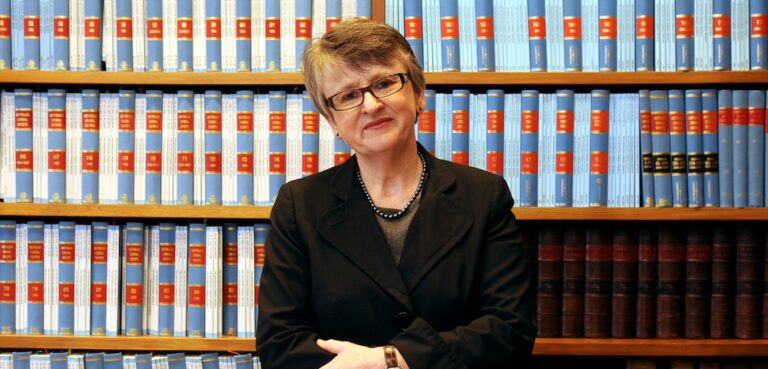
‘Till death (or bureaucracy) do us part
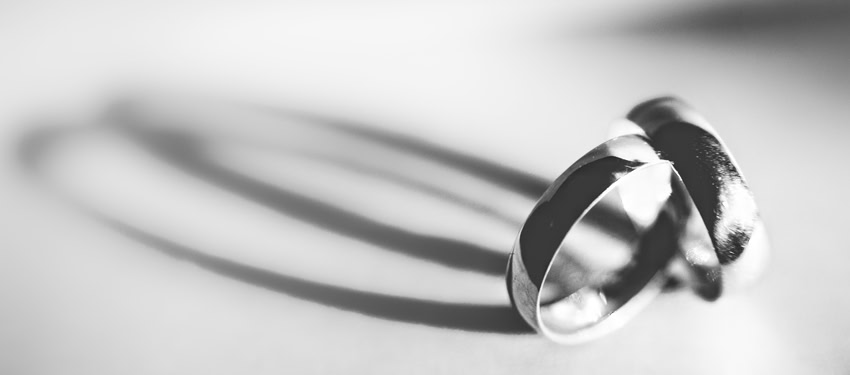
DID you hear the one about the married couple who loved each other so much they were forced to divorce?
About the couple who had been through challenging times but had persevered and their vows remained intact?
Only to find the government forced them to divorce anyway?
There’s no punchline. This is no joke.
Right now, across Australia, married couples — where one partner has since been through gender reassignment surgery — are forced to make a terrible choice.
If they legally attempt to change the gender on their most important legal document — their birth certificate — they must divorce lest something resembling a same-sex marriage should occur.
The alternative is to legally remain in their previous gender, despite all evidence to the contrary, effectively creating something resembling a same-sex marriage.
The root cause of this administrative anomaly is the Federal Marriage Act, which defines the state of matrimony as being the exclusive preserve of a man and a woman.
Sydney state independent MP Alex Greenwich and upper house Greens MP Mehreen Faruqi are introducing a bill to the NSW Parliament in September with the aim of ending this perverse gender limbo.
Greenwich said the act only insists on different genders when the marriage comes into effect and state governments are being over-officious in making married trans* people divorce when altering their birth certificate.
“It is devastating that NSW law can currently intervene in a loving marriage and force a couple to divorce,” Greenwich told the Star Observer.
“Marriage is about love and commitment not about sex and gender.
“I particularly feel for the children of these couples, who know their parents love each other, but don’t know why the State Government wants to legally tear their family apart.”
In June, the Greens introduced a similar bill in the South Australian Parliament while the ACT has made moves to simplify the altering of certificates.
Nevertheless, Transgender Victoria’s Sally Goldner said most states had similar hurdles in place: “People are put in this horrible no-win position where they either have a birth certificate, which is wrong, or have to divorce, when they don’t want to, and after they have probably been through enough turbulence as it is.
“It’s unfair and inhumane.”
Australian Marriage Equality (AME) national director Rodney Croome said all MPs who have expressed support for the institution of marriage should back the upcoming bill as keeping marriages together is at its core.
“Nothing demeans and diminishes marriage more than forcing people to divorce simply because one partner has been brave enough to be true to who they are,” he said.
“AME will be encouraging MPs in other states to follow NSW’s lead and introduce this important legislation.”
A spokesperson for NSW Attorney General Brad Hazzard said while he was “willing to consider all bills put to the Parliament,” he wouldn’t comment until it was introduced.
The Star Observer spoke to three Australian married couples — novices attempting to navigate the Kafkaesque quirks of the country’s bureaucracy.
Caroline Love and Sarah Adcock, Wagga Wagga
“OUR eight-year-old daughter was the ring bearer at our wedding,” says Sarah who, when Gareth, wed Caroline in 2008.
“It was a beautiful day with my beautiful family and I want someone to look her in the eye and explain to her why our marriage isn’t valid.”
Agriculture bought both Sarah and Caroline to Wagga Wagga.
“We were good friends at first, we got on really well and then it was just chemistry,” Sarah recalls.
“It’s a cliché isn’t it?”
She added that the couple spurned a wedding cake in favour of a “massive” sourdough bread: “It was made by a local artisan baker and we liked the idea of breaking bread with the people who were important to us.”
Marriage doesn’t make their relationship, says Sarah, “but it’s symbolic of it and it’s the biggest and best and that’s we how we see our relationship — as the biggest and the best thing that’s happened to us.”
Caroline recalls that at the time of their wedding, there wasn’t a plan to transition.
“She could cross dress and I was fine with that but Sarah wasn’t sure how far she wanted to go… But I was certainly part of the conversation the whole way through,” she says.
Sarah recalls her transiition being quite gradual, as she had been “presenting as some kind of androgynous thing” for a while. She eventually began hormone treatment and went full-time as a woman in 2012.
While Sarah’s parents have stopped talking to her and “there are issues with my sisters who say its okay bit I don’t hear from them,” friends, family and colleagues have all been accepting.
“A lot of what held me back was the fear of what might happen and Wagga is a conservative seat but we have not had a skerrick of trouble,” Sarah says.
Sarah had gender reassignment surgery in April. However, she has chosen not to change her birth certificate precisely because of the necessity to divorce Caroline.
“The terms of divorce and annulment are very clearly made out and we don’t qualify,” she says.
“We do not have an irreconcilable difference and I won’t say that we do because it would be a lie.
“So there is actually no way we could divorce… Our marriage is something we took really seriously and I’m not going to let anybody take it. They can get stuffed.
“It’s a human rights issue and that’s why the Marriage Act can’t stand as it is.
Sarah suggests a simple solution: “Change the bloody act. Move on.”
Ellie and Lisa White, Melbourne
IT’S a busy Saturday morning in the White household located in Berwick in Melbourne’s south east.
The four kids are upstairs playing computer games but preparations are underway for one to have a surprise birthday tea with the grandparents later this afternoon.
Then there’s the driving lesson with one of the older children to squeeze in “and then supermarket shopping, cleaning, washing and all the normal stuff families do,” says Lisa, who has been married to Ellie for 22 years.
Except when they got married, Ellie was Scott.
The couple, who are both in nursing, met through their church.
“We’re like best friends,” Ellie says.
“We used to cry on each other’s shoulders when we broke up with other people and one day it turned into something more and I thought — this is right.
“Lisa proposed… She said, ‘I’m going to marry you one day’.”
Lisa chimes in: “It wasn’t really a proposal. More of a statement.”
Ellie says she felt like she needed six months to think about the momentous decision but two days later, she said yes.
However, the marriage was put under strain when Scott began to fade away in favour of Ellie.
“When he was first diagnosed with gender dysphoria we did have a brief period of separating when I was getting my head round things,” Lisa recalls.
“But we got back together once she began to transition.
“I decided that she’s still my best friend so I wanted to stick by and support her and make our family work and that’s the bottom line really.”
Ellie laughs: “It’s because I’m so hot.”
The kids “put two and two together,” says Lisa, “but we sat down with them and talked about it as well.
“They were extremely accepting. For the youngest two it was a bit of a shock as they were losing their dad but it took them a day and then they were okay because they still had Ellie.”
However, word soon spread and one afternoon Lisa received a call from the mother of one of her son’s school friends saying she overheard him explaining “his Dad was going to become a woman and start wearing dresses”.
“I don’t really wear dresses though,” Ellie says.
“I’m not a girly girl at all. Jeans and t-shirts, leggings, maybe a tunic in summer. Pretty boring really. Why would you go through all of this just for the clothes?”
As the surgery date neared the couple discussed their options: “She’s honoured me by sticking by me and as much as I’d like to have an ‘F’ on my birth certificate, my marriage is more important.”
Ellie hesitates. “But we should be able to have both… And that’s tough, because [that means] my history is open for anyone to see.”
Particularly in her line of work where background checks are an everyday occurrence.
“And it’s stressful because you’re wondering ‘do they know?’ and there are lots of religious-based organisations and aged care centres out there and [you don’t know] whether they’re going to be accepting of the fact I was once male,” Ellie says.
“I don’t want to have to go through life having people find out things they don’t need to know. It’s like opening up an old sore.”
Lisa echoes Ellie’s sentiments: “We have to make that choice of marriage or gender and it’s really not fair.”
While she supports marriage equality, Lisa rejects suggestions it’s same-sex marriage by the back door highlighting that when they wed it was strictly by the letter of the act.
“We’ve been married 22 years and that’s against the odds,” Ellie says.
“We’re a couple with four children keeping the family unit together and minimising our burden on society and we don’t use any government funding but the government wants us to divorce — it’s bizarre.”
The couple say the number of people in their situation is small so it should have little effect on anyone else but would have a huge effect on their family.
“Love is love, it knows no gender,” Ellie says.
Marti and Kate Winkworth, Brisbane
THE next few months are going to be busy for Marti and Kate, who live in the northern Brisbane suburb of Bray Park.
In September, the couple, who have been together for eight years, are expecting their first baby. But before that Marti will undergo gender reassignment surgery.
“We wanted Marti to have the operation before the baby gets here,” says Kate, “because it would be quite difficult to have a young child and go through the operation and we wanted Marti to have a fresh start and be the person she wants to be.”
Kate works in the finance industry while Marti tends to the couple’s online wedding decoration business. It’s a long way from the muddy fields of Germany where Marti served in the British Army as a Recovery Mechanic.
“I would recover anything from Land Rovers through to tanks,” she says.
“My task was helping equipment back on to their wheels or tracks, like an RACQ man, but for million pound vehicles behind enemy lines.
“And at times of conflict if we couldn’t recover it we’d blow it up so booby traps and bomb disposal were in my repertoire.”
After leaving the army and returning to Britain, Marti met Kate online. Well, strictly speaking, he met Kate’s mother who had put a sneaky profile of her daughter online to give romance a hand.
“I was trapped going on a date and I thought oh well, I haven’t been on one for 15 years I may as well have some practice,” Kate recalls.
Marti — then Martin — proposed to Kate on his birthday while the pair floated above the Australian countryside in a hot air balloon.
A year after tying the knot, the couple emigrated to Queensland.
“I pretty much figured out six months into our relationship Marti was more comfortable as a girl but it took him a while to come to terms with it,” Kate says.
“He was totally different to the other boyfriends I’d had. He was softer, kinder, gentler and more feminine and that really attracted me because he wasn’t this hard guttural type person which is what most blokes are.”
As Marti began to live more as a woman he become more relaxed and comfortable in his own skin.
“It didn’t bother me in the slightest. I just wanted him to be happy,” Kate says.
Marti adds: “I’m pretty level headed… I’ve just changed the wallpaper and life makes more sense now.”
However, what makes less sense for the couple is both the British and Australian gender bureaucracy they will shortly have to tackle and the prospect of having to divorce in two countries.
The most concerning dilemma surrounds their newborn.
“If I keep my birth certificate as a man then I’ll still technically be the father but if I change it I have the added complication of maybe having to adopt my own child,” Marti says.
“It’s become a minefield because you’re damned if you do and you’re damned if you don’t.
“You always hear the politicians trying to keep the family together. Well, we’re staying together and they’re not doing anything to support us.
“We should be supported rather than ostracised.”
**This article first appeared in the August issue of the Star Observer. The September issue will hit the streets this Thursday (August 21) in Melbourne, Sydney, Brisbane, Adelaide and Canberra. Click here to find out where you can grab your free copy.
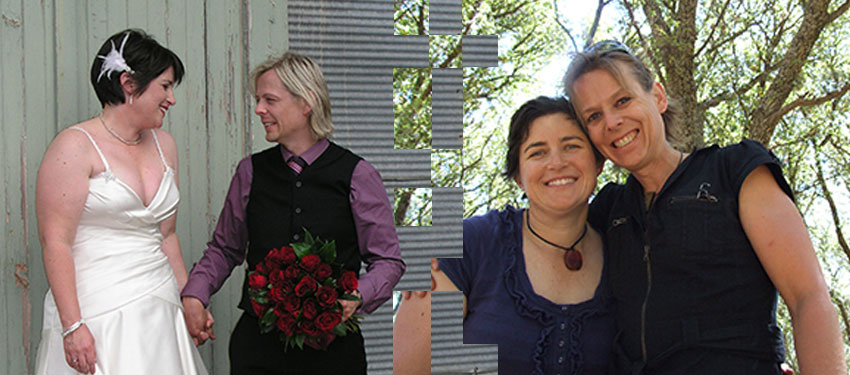
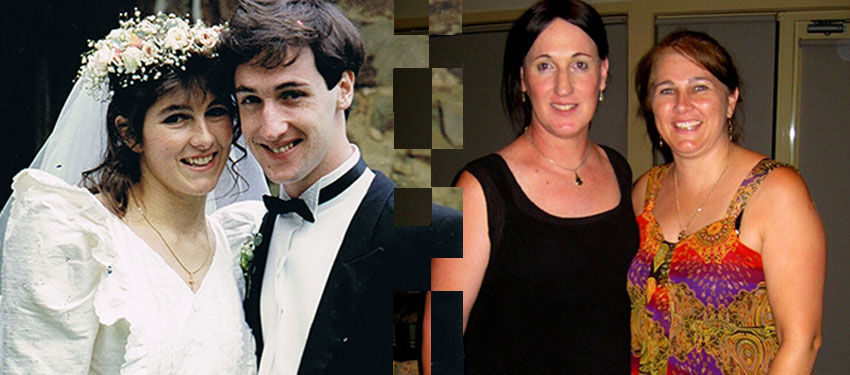
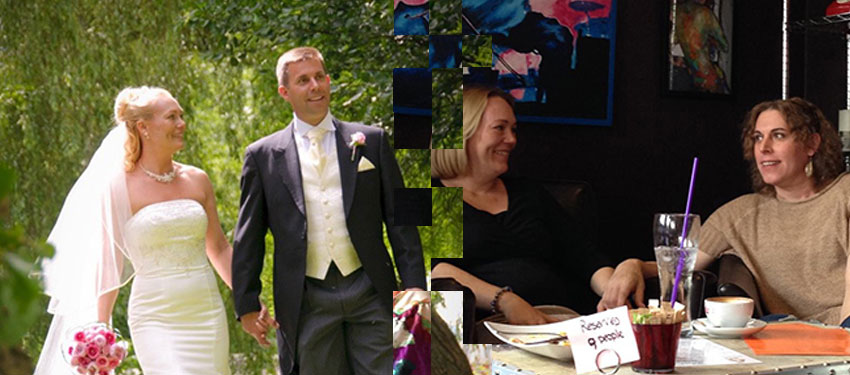
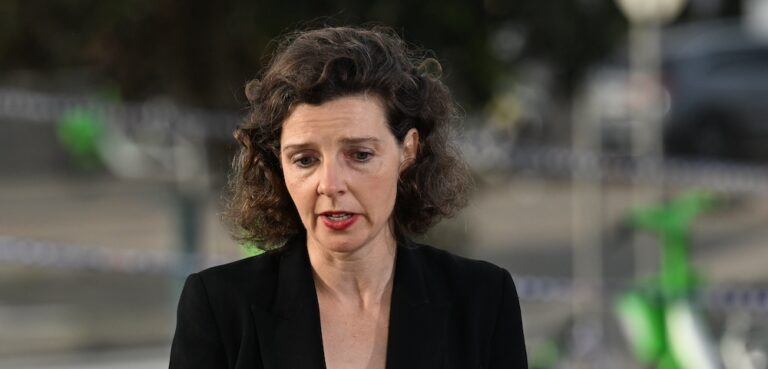
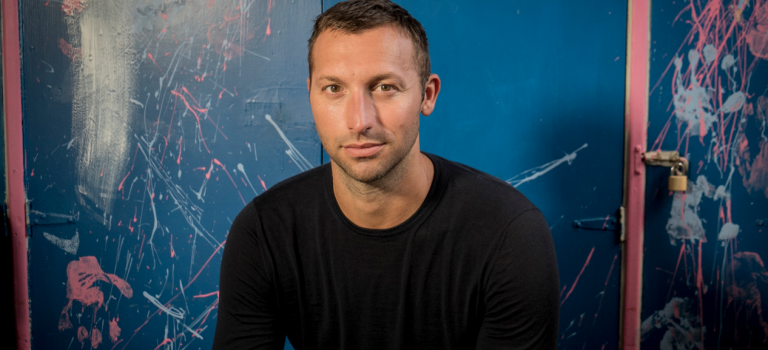
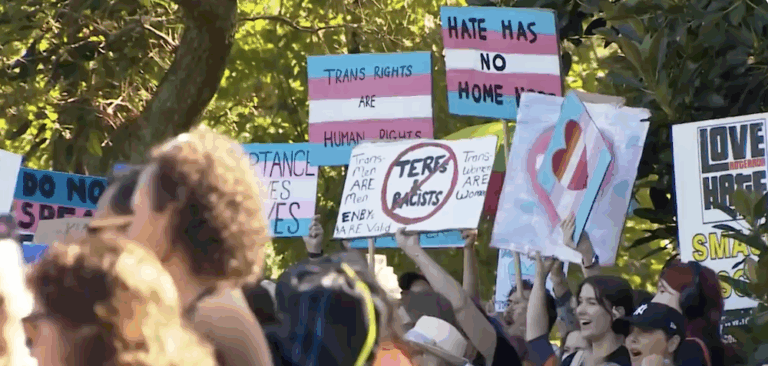
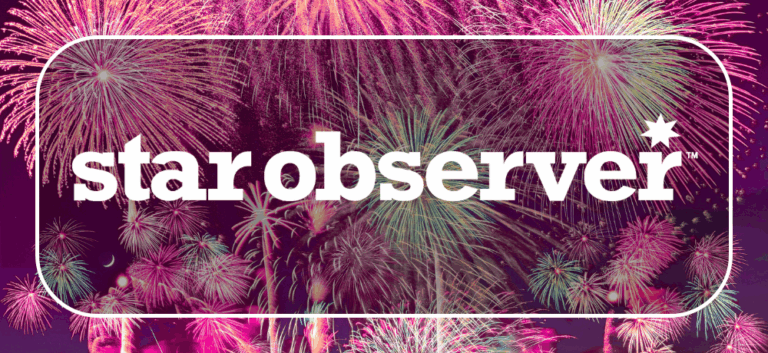
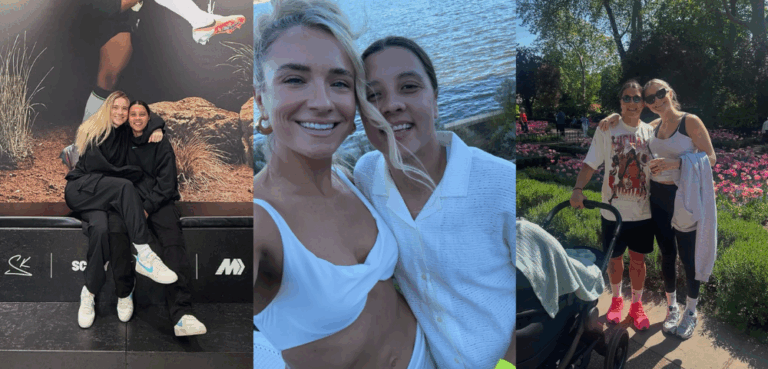
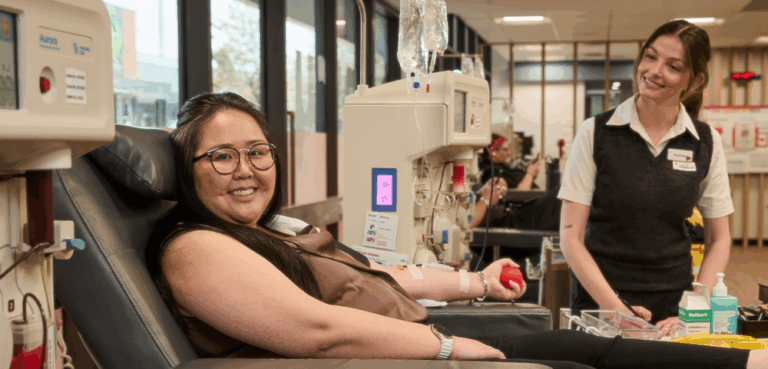
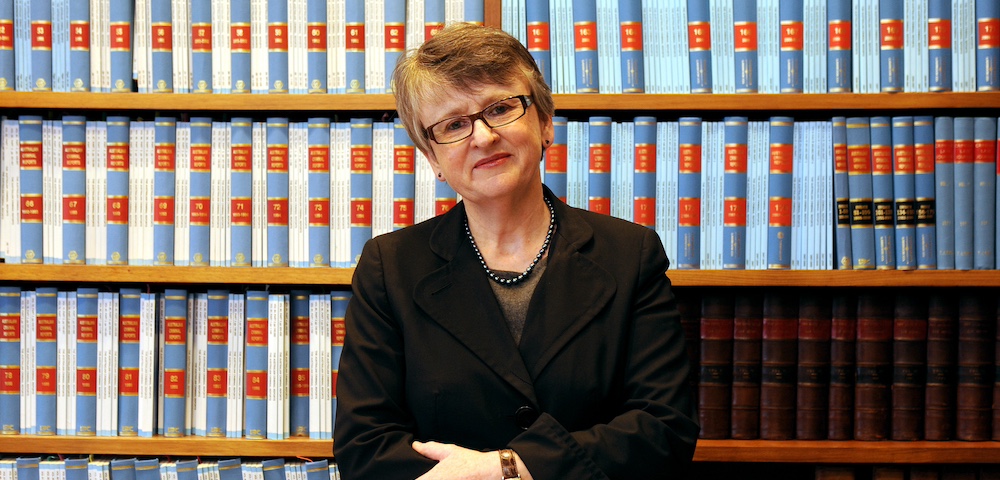
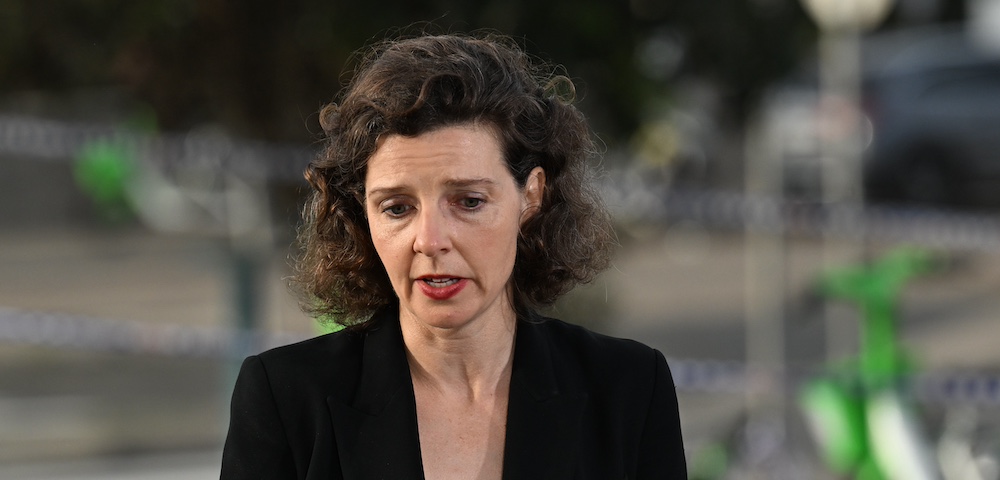
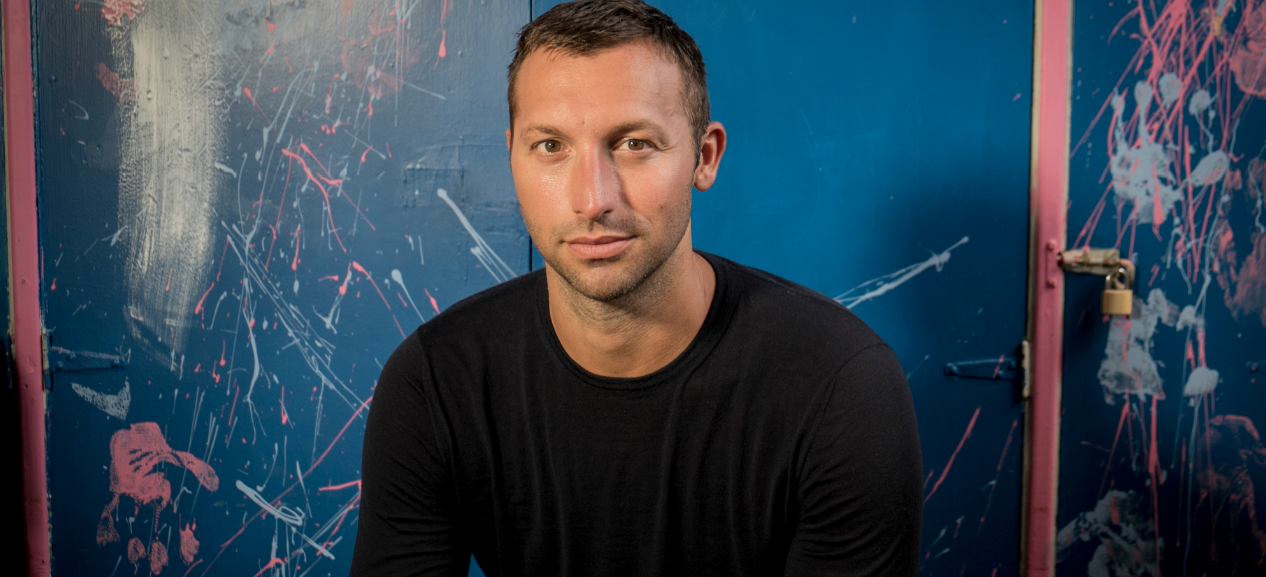
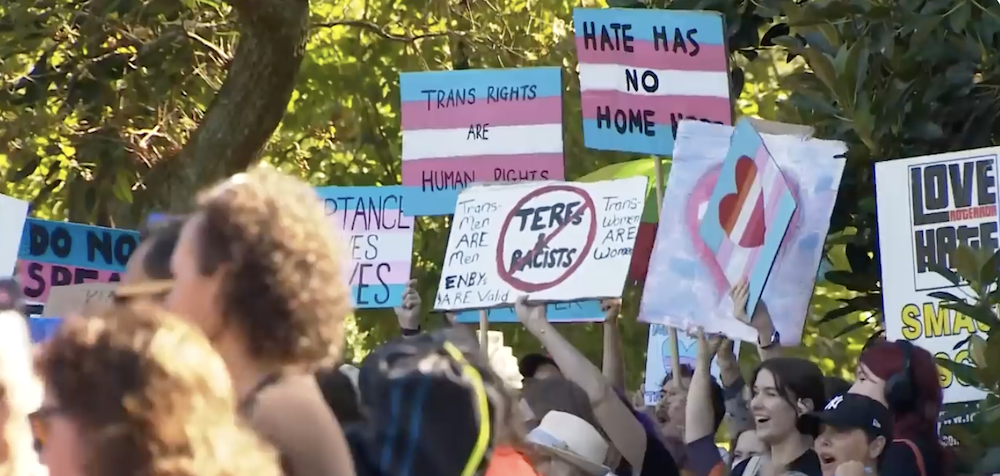

A thoughtful story about a complex and oft ignored subject. Thanks Benedict…..
How full of hate do you have to be to enforce this ridiculousness? seriously. “Something resembling a same sex marriage may occur” – preposterous! IT WAS ALWAYS A SAME SEX MARRIAGE. YOU JUST DIDN’T KNOW.
What a total joke the Australian legal system really is!
Time to update all laws on both birth certificates and marriage!
Time for full equality in 2014!